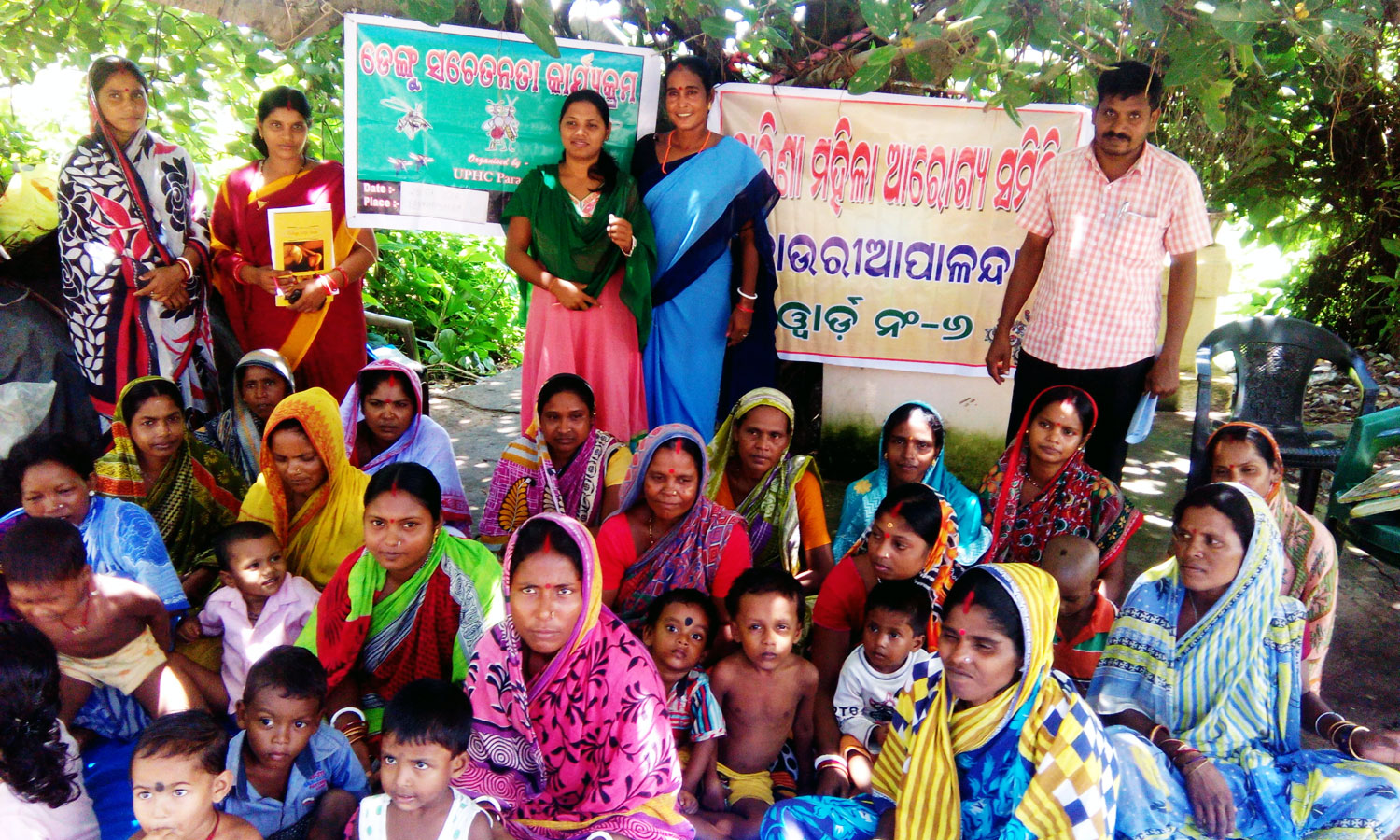Location: Salia Sahi Slum, Bhubaneswar, Odisha
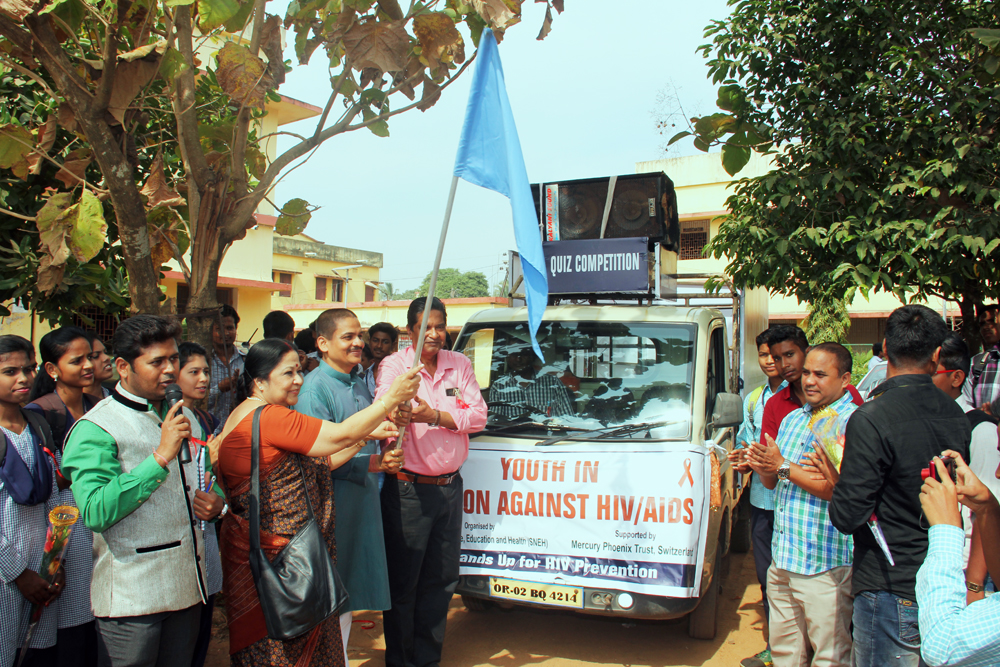 SNEH has been working on an impactful and inclusive HIV/AIDS prevention and control programme since 1995. The first few STD clinics were set up in JKPur and Rayagada, but now SNEH has shifted its HIV/AIDS intervention entirely to Salia Sahi slum in Bhubaneswar, one of the most congested and underserved pockets of the Odisha capital.
SNEH has been working on an impactful and inclusive HIV/AIDS prevention and control programme since 1995. The first few STD clinics were set up in JKPur and Rayagada, but now SNEH has shifted its HIV/AIDS intervention entirely to Salia Sahi slum in Bhubaneswar, one of the most congested and underserved pockets of the Odisha capital.
SNEH’s direct intervention includes one-on-one or group counseling, awareness programs, public rallies, street plays, group-education programs, quiz competitions, sports events, condom distribution – all with an eye to creating an enabling environment that will foster an attitude and behavior change in the slum communities.
The main objectives of SNEH’s flagship ‘Youth in Action Against HIV/AIDS’ program has been to increase public awareness about STDs/HIV/AIDS among the youth, as well as the older slum inhabitants. Engaging the youth is essential to the project’s success: It accords them a sense of ownership and, as future leaders, gives them a voice in decisions that will impact their lives.
The Salia Sahi youngsters’ energy and outlook has been an essential resource in the expansion of the HIV/AIDS project. Sports, music, theatre and workshops have been an innovative and creative means to reach the message to a critical target group that has been feeling a disconnect with the primary issues of sexual health and hygiene. Also, prevalent gender inequity has kept girls out of the mainstream when it comes to education and training programs, leaving them at greater risk to violence and STDs.
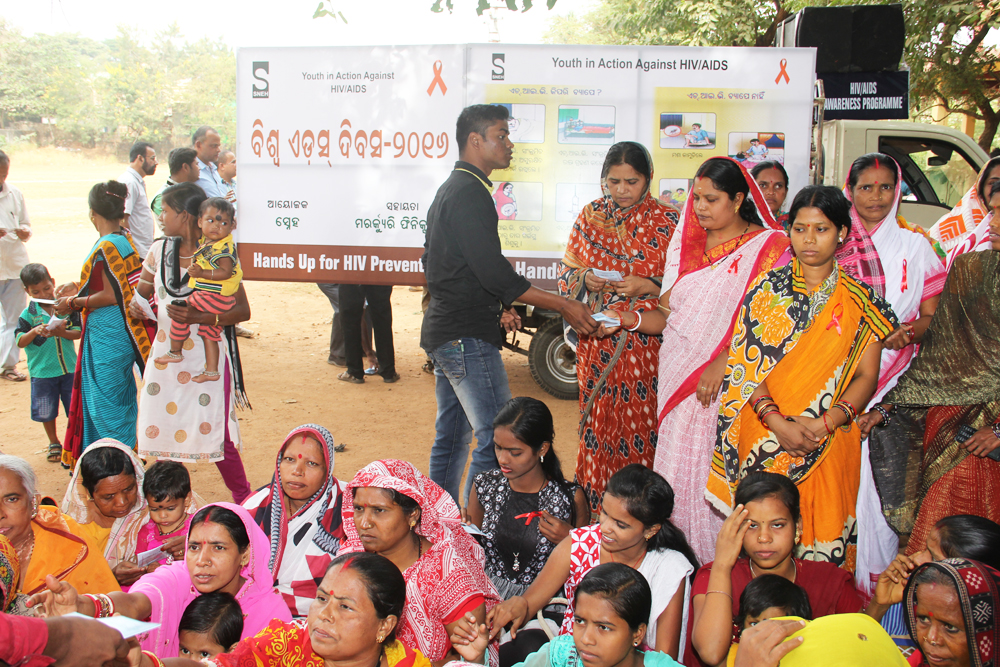 The great mismatch between job opportunities and skills training (backed by relevant education), has led to fewer employment and entrepreneurship prospects, especially in the slums. And finally, parental care, peer approval and support from the wider community can be strong influences to help the slum youth stay away from substance abuse, alcoholism, violence, suicide and of course unsafe sexual behaviour. Having someone to confide in and count on during a crisis; someone to give advice and care can be of tremendous help.
The great mismatch between job opportunities and skills training (backed by relevant education), has led to fewer employment and entrepreneurship prospects, especially in the slums. And finally, parental care, peer approval and support from the wider community can be strong influences to help the slum youth stay away from substance abuse, alcoholism, violence, suicide and of course unsafe sexual behaviour. Having someone to confide in and count on during a crisis; someone to give advice and care can be of tremendous help.
SNEH’s staff at the local Sampriti Resource Center, and the Youth Cells in Salia Sahi, fulfil this role excellently. These are venues for programs, meetings, knowledge-sharing, community dialogue or just a place for the youngsters to get together. A Youth Cell for the adolescent girls and young women of the slum has also been set up, and is managed by a trained psychologist who provides counseling and moral support to victims of gender and domestic violence. The cell is used for training programs, workshops for the stakeholders, and also has space (and privacy) for inter-personal counseling. Different training programs on reproductive health rights, gender and peacebuilding and motivation and aspiration, are conducted at the center. Among the special events held here are International Women’s Day and World AIDS Day commemorations; and football and kabaddi tournaments for adolescent girls. ‘Freddie for A Day’—a musical event spreading awareness on the life and achievements of rock star Freddie Mercury, is organized every year on September 5.
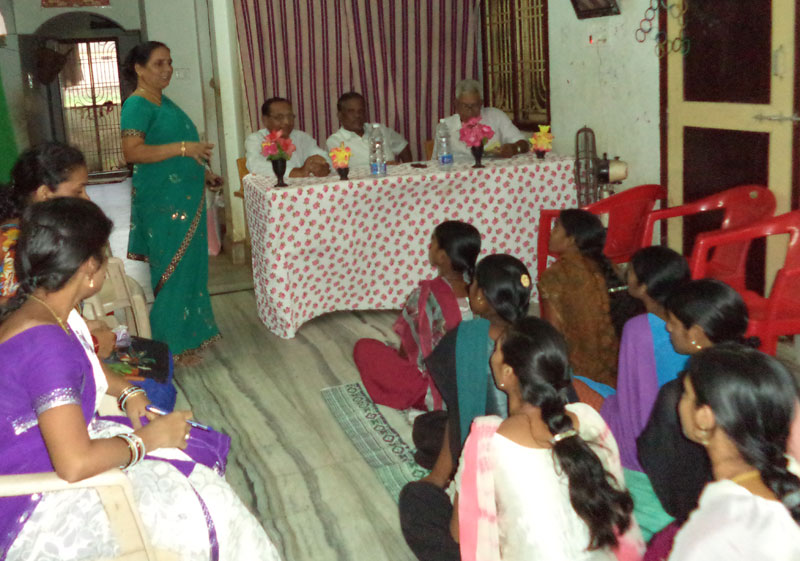 SNEH’s ‘Swadhar Gruha’ in Rayagada town in Odisha currently accommodates some 50 destitute women and girls, many of whom have been ostracized and abandoned by their families or their communities. This is the only home functioning in this tribal-dominated district, and the primary aim of this project is to either reconcile the women with their families of attempt to rehabilitate and mainstream them by providing vocational skills training. During their stay at the Home, the women are provided food, shelter, healthcare and legal aid, should they require it.
SNEH’s ‘Swadhar Gruha’ in Rayagada town in Odisha currently accommodates some 50 destitute women and girls, many of whom have been ostracized and abandoned by their families or their communities. This is the only home functioning in this tribal-dominated district, and the primary aim of this project is to either reconcile the women with their families of attempt to rehabilitate and mainstream them by providing vocational skills training. During their stay at the Home, the women are provided food, shelter, healthcare and legal aid, should they require it.
 SNEH has been working on an impactful and inclusive HIV/AIDS prevention and control programme since 1995. The first few STD clinics were set up in JKPur and Rayagada, but now SNEH has shifted its HIV/AIDS intervention entirely to Salia Sahi slum in Bhubaneswar, one of the most congested and underserved pockets of the Odisha capital.
SNEH has been working on an impactful and inclusive HIV/AIDS prevention and control programme since 1995. The first few STD clinics were set up in JKPur and Rayagada, but now SNEH has shifted its HIV/AIDS intervention entirely to Salia Sahi slum in Bhubaneswar, one of the most congested and underserved pockets of the Odisha capital. The great mismatch between job opportunities and skills training (backed by relevant education), has led to fewer employment and entrepreneurship prospects, especially in the slums. And finally, parental care, peer approval and support from the wider community can be strong influences to help the slum youth stay away from substance abuse, alcoholism, violence, suicide and of course unsafe sexual behaviour. Having someone to confide in and count on during a crisis; someone to give advice and care can be of tremendous help.
The great mismatch between job opportunities and skills training (backed by relevant education), has led to fewer employment and entrepreneurship prospects, especially in the slums. And finally, parental care, peer approval and support from the wider community can be strong influences to help the slum youth stay away from substance abuse, alcoholism, violence, suicide and of course unsafe sexual behaviour. Having someone to confide in and count on during a crisis; someone to give advice and care can be of tremendous help.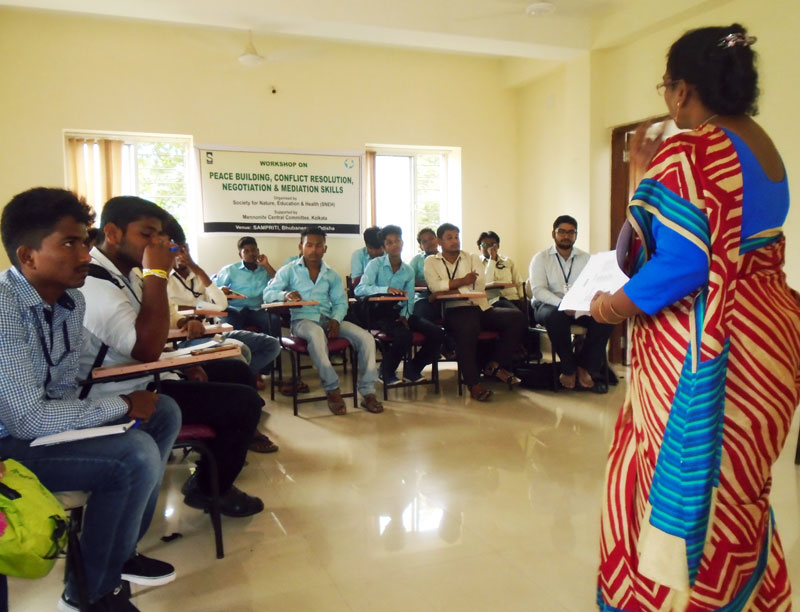 The otherwise-peaceful state of Odisha has seen a spate of unprecedented communal violence in recent times, followed by a spurt of Left-wing extremism in different parts of the state. SNEH has initiated strategic peace-education interventions for school and college students in Bhubaneswar, and in the Kandhamal district of Odisha (the latter, following communal conflicts in Kandhamal in 2008). SNEH also conducts peace-building programs for slum communities in Bhubaneswar, and is an active member of the state-level citizen’s forum, ‘Odisha Nagarika Samaj’.
The otherwise-peaceful state of Odisha has seen a spate of unprecedented communal violence in recent times, followed by a spurt of Left-wing extremism in different parts of the state. SNEH has initiated strategic peace-education interventions for school and college students in Bhubaneswar, and in the Kandhamal district of Odisha (the latter, following communal conflicts in Kandhamal in 2008). SNEH also conducts peace-building programs for slum communities in Bhubaneswar, and is an active member of the state-level citizen’s forum, ‘Odisha Nagarika Samaj’.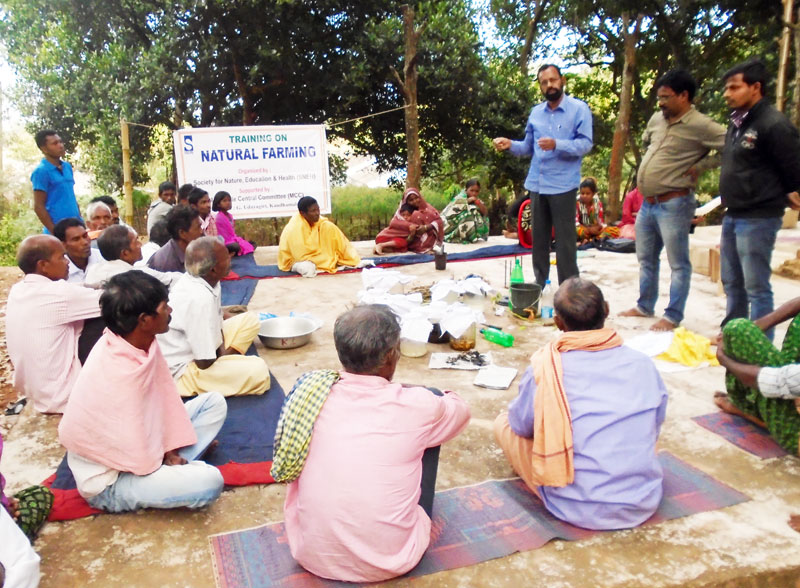 SNEH began its peace-building intervention in the G. Udayagiri Block of Kandhamal district in Odisha, in the immediate aftermath of horrifying communal conflicts in 2008. Initiatives on conflict resolution and restoration of communal harmony and peace were undertaken in the beginning. Later, endemic issues like malnutrition, health, hygiene and sanitation, and livelihood strengthening activities were also included in the intervention.
SNEH began its peace-building intervention in the G. Udayagiri Block of Kandhamal district in Odisha, in the immediate aftermath of horrifying communal conflicts in 2008. Initiatives on conflict resolution and restoration of communal harmony and peace were undertaken in the beginning. Later, endemic issues like malnutrition, health, hygiene and sanitation, and livelihood strengthening activities were also included in the intervention.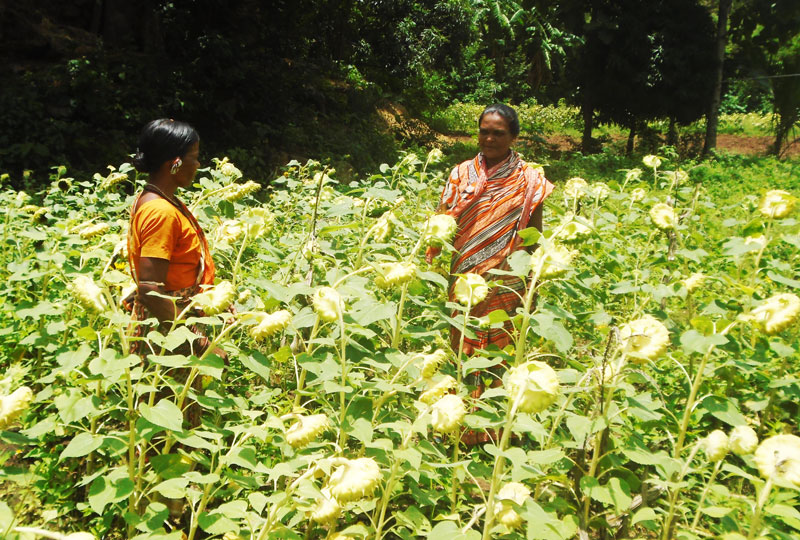 SNEH has introduced modern farming practices through popularisation of SRI (System of Rice Intensification) and row transplantation of paddy. Farmers have been trained in ‘natural farming’ through the use of Indigenous Micro Organisms (IMO) prepared by using locally-sourced materials. This new technology has also contributed to improve the health and nutrition of the local people.
SNEH has introduced modern farming practices through popularisation of SRI (System of Rice Intensification) and row transplantation of paddy. Farmers have been trained in ‘natural farming’ through the use of Indigenous Micro Organisms (IMO) prepared by using locally-sourced materials. This new technology has also contributed to improve the health and nutrition of the local people.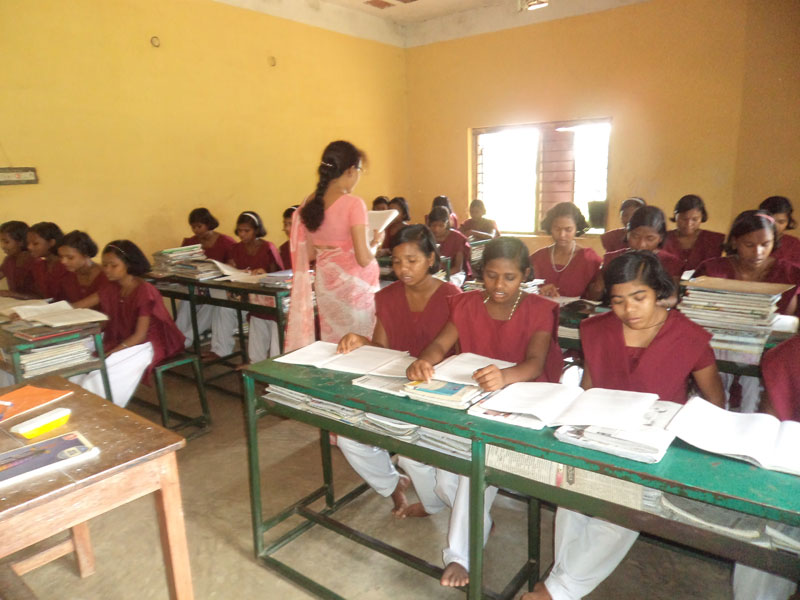 Since 1995, Society for Nature, Education and Health (SNEH) has been managing a fully-residential High School for Tribal Girls (from Class I to Class X), in Rayagada, a remote tribal district of Odisha. The school, Nalini Vidya Mandir (NVM), is located in an area that is included in the Integrated Tribal Development Project and Tribal Sub Plan area, but also has a significant Maoist presence.
Since 1995, Society for Nature, Education and Health (SNEH) has been managing a fully-residential High School for Tribal Girls (from Class I to Class X), in Rayagada, a remote tribal district of Odisha. The school, Nalini Vidya Mandir (NVM), is located in an area that is included in the Integrated Tribal Development Project and Tribal Sub Plan area, but also has a significant Maoist presence.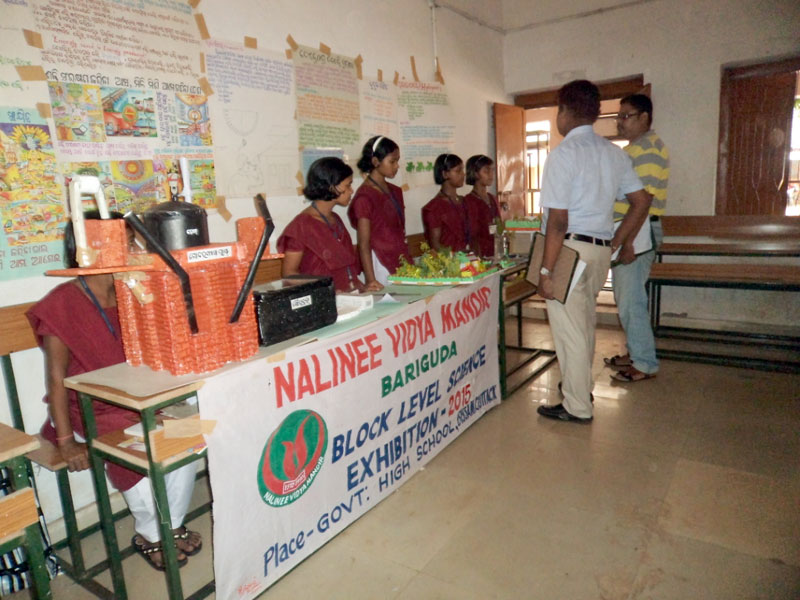 NVM students not only excel in education but also top in extracurricular activities at both the state and district levels, winning prizes in sports, science exhibitions, painting and drawing and essay-writing competitions.
NVM students not only excel in education but also top in extracurricular activities at both the state and district levels, winning prizes in sports, science exhibitions, painting and drawing and essay-writing competitions.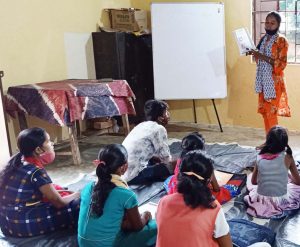 To compensate for the poor quality of education provided in government schools in Odisha, SNEH has started special morning and evening free tutorial classes for children from the Salia Sahi slum in Bhubaneswar. Most slum families are below the poverty line (BPL) and cannot afford the coaching their children might need, to do better in the board-level examinations.
To compensate for the poor quality of education provided in government schools in Odisha, SNEH has started special morning and evening free tutorial classes for children from the Salia Sahi slum in Bhubaneswar. Most slum families are below the poverty line (BPL) and cannot afford the coaching their children might need, to do better in the board-level examinations.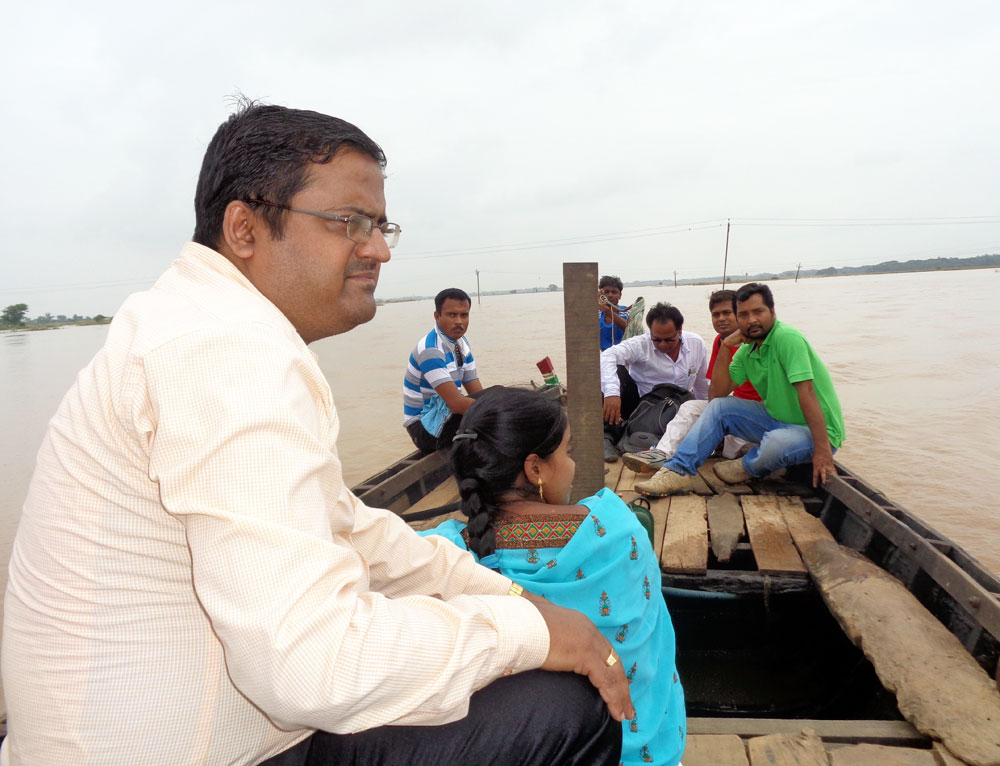 The floods of 2014 left more than nine lakh people, across 23 Odisha districts, marooned and homeless. The worst affected were the people of Jajpur, Kendrapara and Jagatsinghpur districts, where the district administration, in the aftermath of the floods, focused its evacuation and relief work. But the biggest challenge faced by the administration once the waters receded, was a plethora of ailments and epidemics like diarrhea, cholera, skin diseases and general fever, cough and colds among the flood-affected people. A more long-term problem was that the open wells, which were a primary source of drinking water for the people in these districts, had become contaminated. Urgent steps were required to clean and restore the wells, and spread awareness among the local people about purifying their drinking water.
The floods of 2014 left more than nine lakh people, across 23 Odisha districts, marooned and homeless. The worst affected were the people of Jajpur, Kendrapara and Jagatsinghpur districts, where the district administration, in the aftermath of the floods, focused its evacuation and relief work. But the biggest challenge faced by the administration once the waters receded, was a plethora of ailments and epidemics like diarrhea, cholera, skin diseases and general fever, cough and colds among the flood-affected people. A more long-term problem was that the open wells, which were a primary source of drinking water for the people in these districts, had become contaminated. Urgent steps were required to clean and restore the wells, and spread awareness among the local people about purifying their drinking water.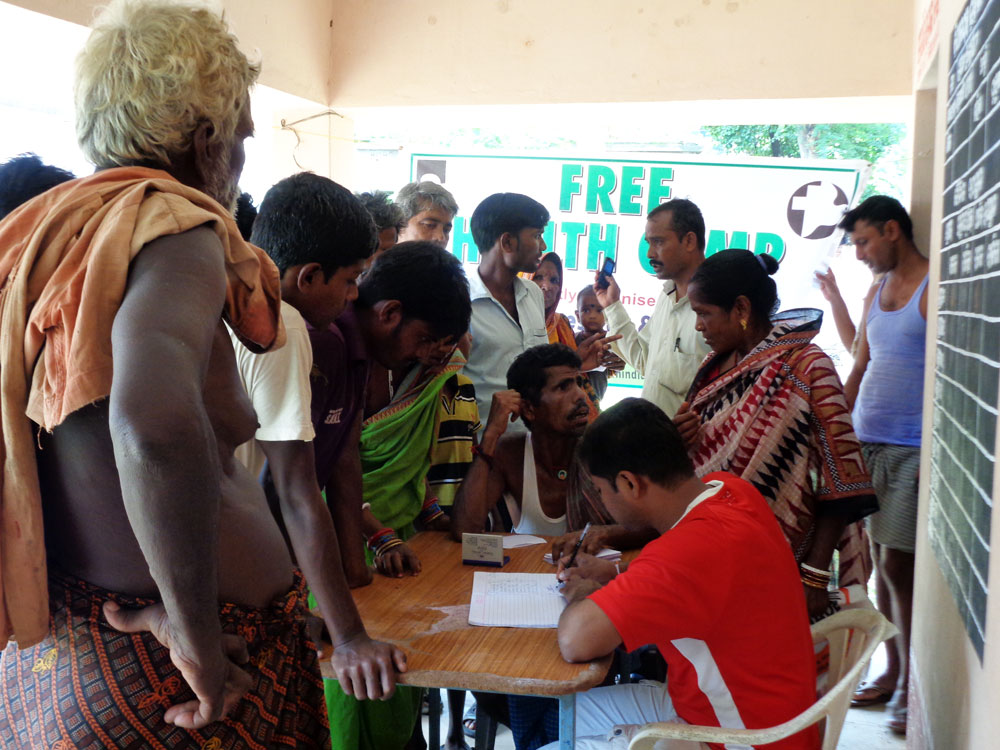 SNEH rushed a team of doctors, paramedics and volunteers to Patamundai Block in Kendrapara district, to administer emergency healthcare to the flood-affected people. SNEH organized health camps in the remote areas and distributed essential medicines, while simultaneously carrying out awareness programs about flood-related health hazards.
SNEH rushed a team of doctors, paramedics and volunteers to Patamundai Block in Kendrapara district, to administer emergency healthcare to the flood-affected people. SNEH organized health camps in the remote areas and distributed essential medicines, while simultaneously carrying out awareness programs about flood-related health hazards.